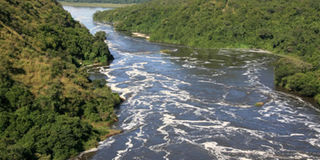Nile Basin faces water security risk

What you need to know:
- Lack of political will among Nile basin initiative member states has been identified as the reason for delays in establishing the commission.
Dar es Salaam. Lack of political will between the Nile Basin Initiative member states to approve a Nile River Basin Cooperative Framework Agreement (CFA), which will lead to establishment a permanent commission has been cited as major challenge threatening water security in the countries sharing the resource.
Prime Minister Kassim Majaliwa said this when officiating the 21st Nile Equatorial Lakes Council of Ministers (Nelcom) themed: “Putting Water and Energy Development at the Heart of Regional Transfer and Regional Basin Cooperation”.
He said failure by member states to reach a decision on the framework in 10 years as well as failing to pay contributions or pay them on time are challenges hindering the institution from managing and implementing its obligations. “This factor not only delays development in the region but also threatens water security at the Nile River Basin,” he stressed.
Nile basin member states include Tanzania, Burundi, Rwanda, Democratic Republic of Congo, Ethopia, Egypt, Kenya, Sudan and Uganda.
In view of the fact, he said that it was imperative to strengthen the cooperation so as to deal with challenges including reduction of water flood from Lake Victoria which is one of the major sources of Nile River.
According to him, the water has reduced to human destruction as well as climate change.
Further on, he noted that there was need to increase political will in the implementation of its project, citing discussions on the Rusumo Project which started in 1970 and dragged to 2015 before implementation started taking place, almost 45 years.
He further called on members that were yet to approve the CFA to try and do so because it will benefit all the countries and also enable the institution to manage the Basins resources.
He said that at least 70 per cent of the globe is surrounded by water but only 4 per cent of it is safe for human use where 65 per cent of it is ice.
He noted that at least 11 countries with 480 million people equivalent to 40 per cent in Africa surround the basin while 257 million people live in the basin area and depend on its water for agriculture, fishing, and electricity production among others.
For his part, Water minister Makame Mbarawa called on the member states to pay their contributions and stop dependency on donors.
According to him, depending on others to fund the Nile Basin denies them the right to make decisions.




